June 8, 2025 | 03:48 GMT +7
June 8, 2025 | 03:48 GMT +7
Hotline: 0913.378.918
June 8, 2025 | 03:48 GMT +7
Hotline: 0913.378.918
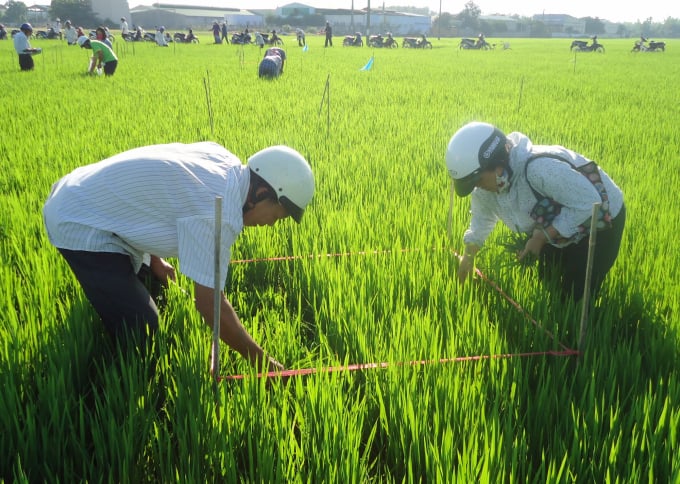
Phu Yen currently has nearly 50% of the cultivated area applying the IPM program. Photo: KS.
Since 1994, in Phu Yen, the integrated pest management (IPM) program has soon been implemented. Farmers are trained and applied this program on rice, vegetable fields..., but the area is not much.
It was not until the period from 2015 to 2020 when the Phu Yen Department of Agriculture and Rural Development advised the Provincial People's Committee to issue a plan on the implementation of the project to promote IPM application on crops that the application area is expanded throughout the local fields in the province.
According to Mr. Nguyen Le Lanh Da, Director of the Sub-Department of Cultivation - Plant Protection Phu Yen, up until the present date, IPM has been widely applied by farmers in the province on rice and vegetable crops through programs and VietGAP production models, following the organic direction, application of technical advances such as "3 decrease, 3 increase" (3G3T), ICM, "1 right, 5 decrease" (1P5G), production linkage...
In particular, the program has trained IPM lecturers (ToT) at agencies and units along with 30 local lecturers; trained 1,830 IPM farmers. This is the core force to continue implementing the IPM program in the coming time in localities.
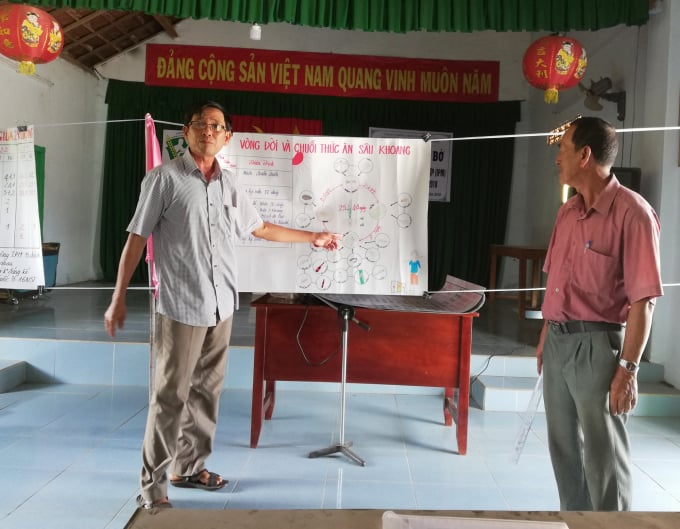
An IPM workshop for farmers. Photo: KS.
As assessed by Mr. Phung Minh Tuan, Chairman of the Board of Directors, Director of Hoa My Tay Service Business Cooperative (Hoa My Tay Commune, Tay Hoa), IPM is a very meaningful program, bringing a lot of benefits to farmers and agriculture. Specifically, IPM has helped farmers accurately identify pests and diseases in the field and which objects are their natural enemies, thereby proactively taking measures to control them.
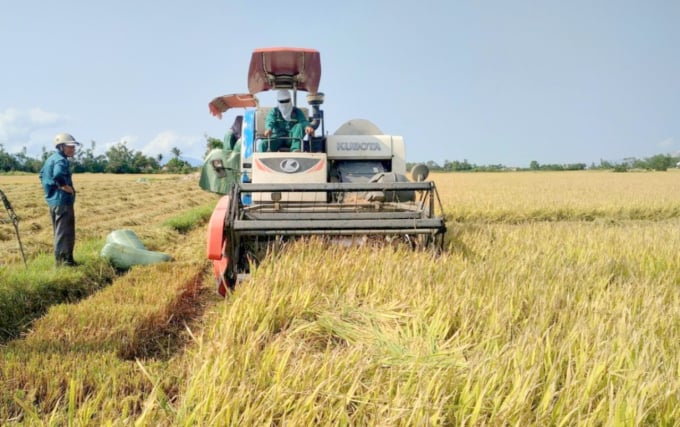
Having expanded the application of IPM, Phu Yen farmers not only increase productivity, but also greatly reduce production costs, protect the fields’ ecological environment. Photo: KS.
"IPM has changed farmers' perception in agricultural production drastically. As we understand which pests and diseases and at what depth should we spray. since then, the number of sprays has been significantly reduced, protecting the environment and ecosystems, especially considering the natural enemies in the field. This is also the principle towards clean agriculture", shared Mr. Tuan.
Sharing the same view as Mr. Tuan, Mr. To Tan Nguyen, Director of Hoa Kien 1 Agricultural Service Business Cooperative (Tuy Hoa City) also said that from 2014 up to now, the application of IPM on rice has helped farmers of cooperatives save costs on pesticides, labor, and increase production profits.
“Now, people have changed their farming methods, they don't seem to use pesticides anymore. When pests and diseases appear, the Plantation - Plant Protection Station and the cooperative visit the fields for inspection and give appropriate recommendations, so farmers do not arbitrarily spray. Since the application of IPM, the entire cooperative rice field of about 70 ha has fewer pests and diseases because their natural enemies are well-protected. In the winter-spring crop, the average rice yield of the cooperative is 80 quintals/ha, up to 90 quintals/ha in some fields, and 7.5 quintals/ha in the summer-autumn crop”, said Mr. Nguyen.
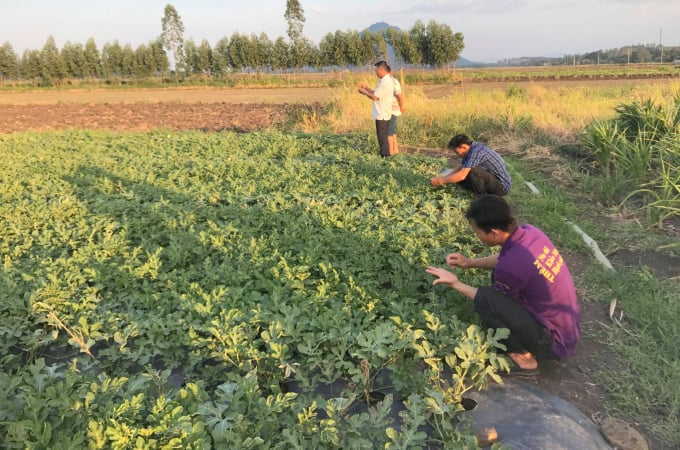
Not only rice, IPM is also increasingly applied by vegetable farmers in Phu Yen. Photo: KS.
It is known that in recent years, the rice productivity of Phu Yen province has been experiencing an annual increase. In which, in 2020, with the rice cultivation area for the whole year reaching 54,793 hectares, the average yield is 71.1 quintals/ha and the total output is 389,578 tons.
Mr. Nguyen Le Lanh Da, Director of Phu Yen Plantation and Plant Protection Sub-Department, said that with the benefits and effectiveness of the IPM program, the Sub-Department will continue to direct Cultivation and Plant Protection Stations to cooperate with localities to promote communication and guide farmers to expand the model.
Moreover, the Sub-Department will strengthen the application of science and technology in agriculture; using high-yield and high-quality varieties adaptive to climate change, implementing advanced technical procedures and sustainable farming methods.
Translated by Samuel Pham
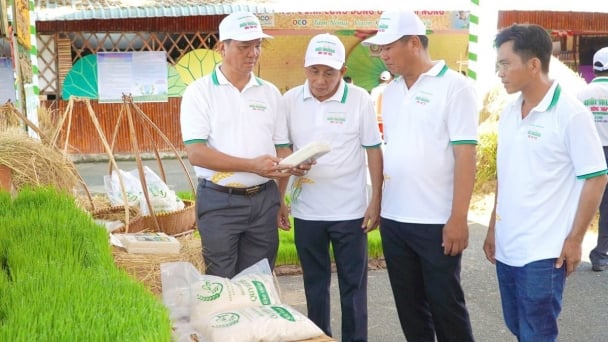
(VAN) Dong Thap has launched a meeting in response to the Action Month for the Environment under the theme 'Live Green - Join Hands for a Green Economy' at Tram Chim National Park.
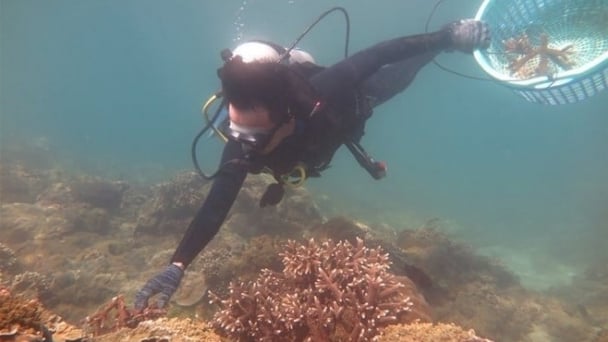
(VAN) The ocean has the capacity to absorb millions of tons of carbon, provided that mangrove forests, coral reefs, and biodiversity are protected.
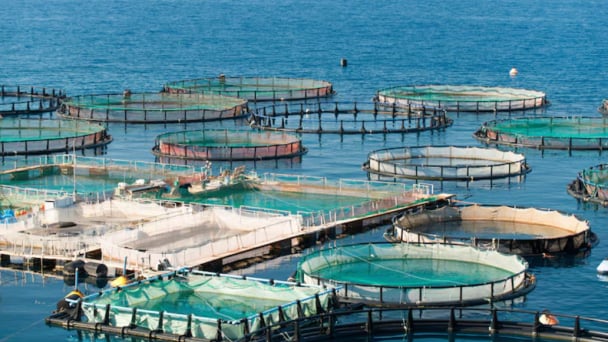
(VAN) Technology is redrawing the map of Vietnamese aquaculture: more modern, greener, and more sustainable.

(VAN) Novel process harnesses machine learning to reveal groups of genes that determine how efficiently plants use nitrogen.

(VAN) Several scientists and farmers are experimenting with soil treatment in some key durian-growing regions such as Cai Lay (Tien Giang), Dak Song, Gia Nghia, and Dak R’lap (Dak Nong).
/2025/05/25/4127-3-073637_820.jpg)
(VAN) Thanks to the promotion from an FAO-implemented project, vegetable production in greenhouses in Moc Chau has seen strong development, from 1.5 hectares in 2021 to nearly 50 hectares in 2024.

(VAN) FAO has recently supported USD 140,000 to implement the project 'Risk mitigation human-animal interface risks through disease control initiatives in pig farming.'